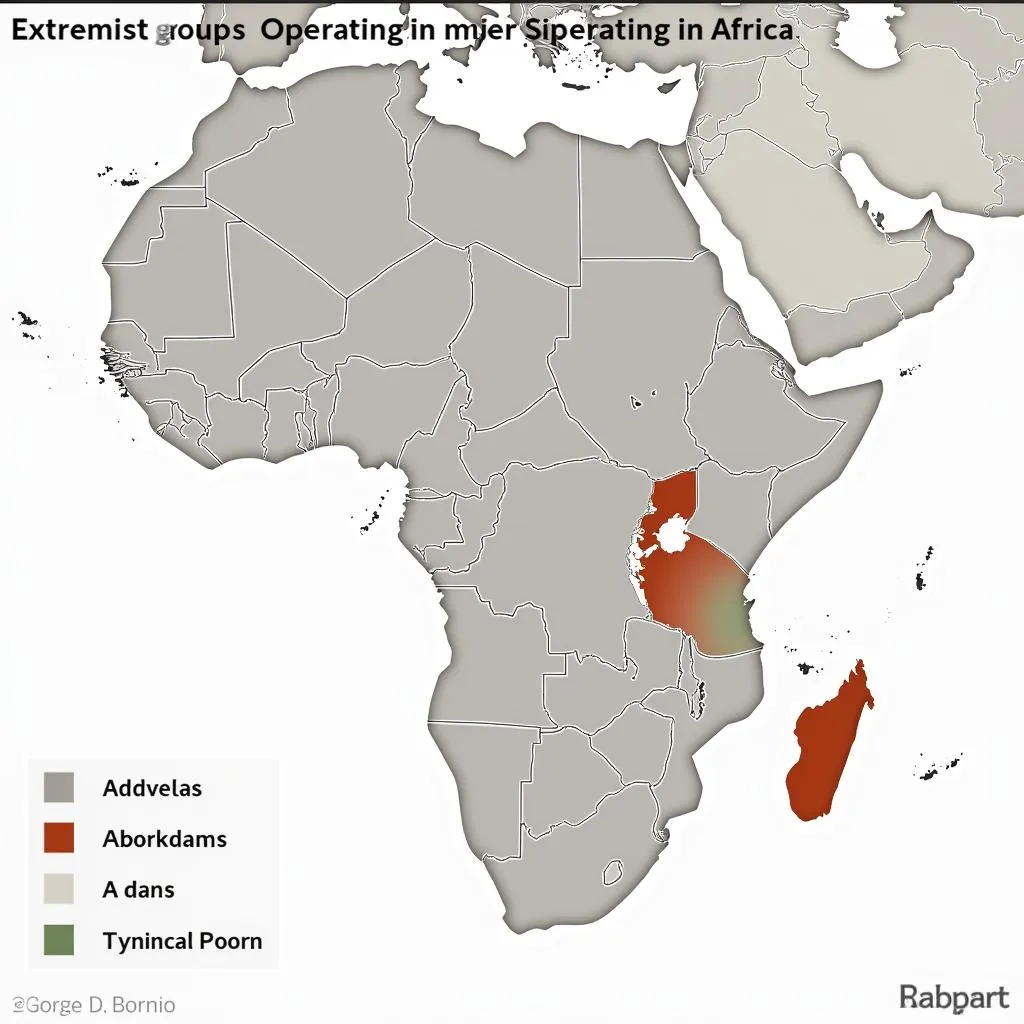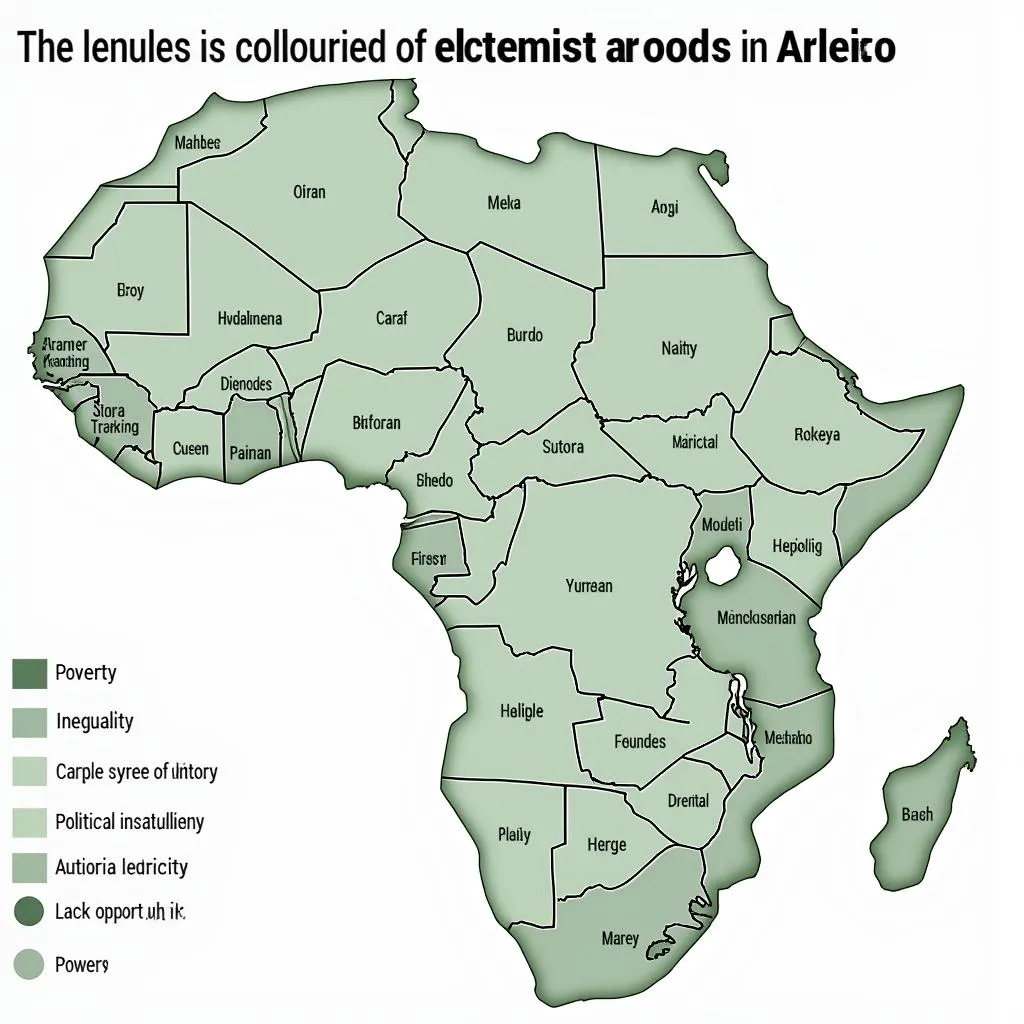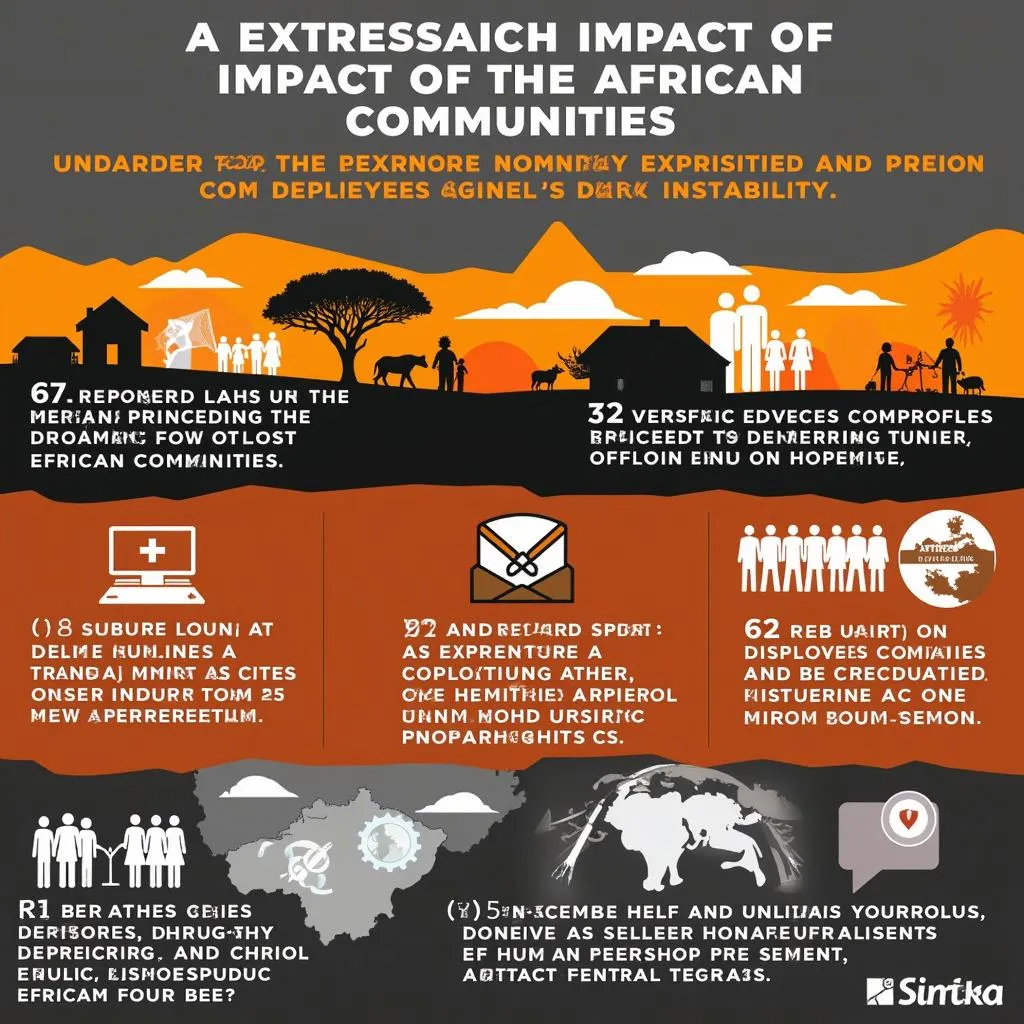Understanding the Complexities of African Extremist Groups
The rise of extremist groups in Africa has become a major concern for regional and global stability. These groups, fueled by a complex interplay of factors, pose significant threats to peace, security, and development across the continent. Understanding the motivations, ideologies, and strategies of these groups is crucial for addressing the challenge they present.
The Roots of Extremist Groups in Africa
Several factors contribute to the emergence and growth of extremist groups in Africa, including:
- Poverty and Inequality: Economic disparity, lack of opportunities, and widespread poverty create fertile ground for extremist recruitment.
- Political Instability and Corruption: Weak governance, corruption, and lack of accountability often lead to frustration and alienation, making individuals susceptible to extremist ideologies.
- Lack of Education and Employment: Limited access to education and employment opportunities, particularly for young people, can lead to disillusionment and create a sense of hopelessness.
- Ethnic and Religious Divisions: Existing tensions and conflicts based on ethnicity, religion, or other social divisions can be exploited by extremist groups to incite violence and hatred.
- Foreign Interference: External actors, including foreign governments or terrorist organizations, can provide support and resources to extremist groups, exacerbating instability and fueling conflict.
- Climate Change and Environmental Degradation: Climate change and environmental degradation are increasing competition for resources, leading to resource scarcity and conflict, which can be exploited by extremists.
Prominent African Extremist Groups
While the specific characteristics of extremist groups vary across the continent, some of the most prominent include:
- Boko Haram (Nigeria): This jihadist group aims to establish an Islamic state in northern Nigeria and has been responsible for widespread violence and human rights abuses.
- Al-Shabaab (Somalia): This al-Qaeda-linked group controls large parts of Somalia and conducts attacks within Somalia and neighboring countries.
- Islamic State (IS) in West Africa (ISWAP): This group, an offshoot of IS, is active in the Lake Chad region and has been responsible for numerous attacks against civilians and military forces.
- Al-Qaeda in the Islamic Maghreb (AQIM): This group operates primarily in North Africa and has been involved in attacks against government forces and civilians in countries like Mali, Algeria, and Niger.
- Lord’s Resistance Army (LRA): This Ugandan rebel group, led by Joseph Kony, has been responsible for horrific atrocities in several countries, including Uganda, the Central African Republic, and the Democratic Republic of Congo.
The Impact of African Extremist Groups
The activities of extremist groups have a devastating impact on African societies, including:
- Loss of Life and Displacement: Extremist violence has resulted in countless deaths and forced millions of people from their homes.
- Economic Disruption: Conflict and insecurity disrupt trade, investment, and economic development, leading to poverty and suffering.
- Humanitarian Crisis: Extremist activities often lead to humanitarian crises, with millions of people in need of food, water, shelter, and medical care.
- Erosion of Trust and Social Cohesion: Extremist violence and propaganda erode trust between communities and undermine social cohesion.
- Regional Instability: The spread of extremism across borders threatens regional stability and poses challenges to international security.
“The rise of extremist groups is a complex issue with no easy solutions. It requires a comprehensive approach that addresses the underlying causes of extremism and promotes peaceful and inclusive societies.” – Professor Amina Abdi, Department of Political Science, University of Nairobi
Combating Extremist Groups in Africa
Addressing the threat of extremist groups in Africa requires a multi-faceted approach that includes:
- Addressing Root Causes: Addressing poverty, inequality, and lack of opportunity through economic development, education, and employment programs is essential.
- Strengthening Governance and Security: Improving governance, combating corruption, and strengthening security forces are crucial to prevent extremist recruitment and violence.
- Promoting Dialogue and Reconciliation: Encouraging dialogue and reconciliation between communities can help to build trust and prevent conflict.
- Countering Extremist Ideologies: Developing effective counter-narratives and promoting moderate religious interpretations are vital to challenge extremist ideologies.
- International Cooperation: International cooperation is essential for sharing intelligence, providing aid, and coordinating efforts to combat extremism.
FAQ:
1. What are the main reasons behind the rise of extremist groups in Africa?
Extremist groups in Africa are often driven by a combination of factors such as poverty, inequality, lack of opportunity, political instability, corruption, ethnic and religious divisions, foreign interference, and climate change.
2. How do extremist groups impact the African people?
Extremist activities cause significant harm to African societies, including loss of life, displacement, economic disruption, humanitarian crises, erosion of trust and social cohesion, and regional instability.
3. What can be done to address the threat of extremist groups in Africa?
Combating extremist groups in Africa requires a multi-pronged approach that addresses the root causes, strengthens governance and security, promotes dialogue and reconciliation, counters extremist ideologies, and fosters international cooperation.
4. What role can international organizations play in addressing extremism in Africa?
International organizations can provide crucial support to African countries by providing financial assistance, expertise, training, and coordination in tackling extremism.
5. What can individuals do to help address the problem of extremist groups in Africa?
Individuals can contribute to combating extremism by promoting peace, tolerance, and understanding within their communities, supporting organizations working to address the root causes of extremism, and raising awareness about the issue.
 A map showing the location of major extremist groups in Africa
A map showing the location of major extremist groups in Africa
 Causes of extremist groups in Africa
Causes of extremist groups in Africa
 The devastating impact of extremist groups on African communities
The devastating impact of extremist groups on African communities
If you require further information or need assistance in combating extremism, please do not hesitate to contact us.
Contact Us:
Phone: +255768904061
Email: [email protected]
Address: Mbarali DC Mawindi, Kangaga, Tanzania
We have a dedicated team available 24/7 to assist you.

